By Maksim Rakipaj
Part fifteen
Memorie.al/ Maksim Rakipaj, originally from Përmet, whose family had helped and supported the Anti-Fascist National Liberation War, after graduating from the Navy School in Vlorë, in 1972 he was appointed an officer in the Merchant Navy, where he served with dedication until in 1977, on the “Durrësi” steamer, he was arrested and sentenced to 15 years in political prison, as part of a “group”, which also included his colleague, Aladin Kapo, the son of Hysni Kapo’s brother. Family biography was also the reason for his punishment. After the end of the war, two of his uncles were sentenced to political prison, his grandfather was declared a kulak and in 1976, his father was expelled from the party. Maksi began serving his sentence in the Ballsh camp and in 1979, he was transferred to the Spaçi camp and then to the Qafë Bari camp. He was released on September 12, 1984, benefiting from a reduced sentence, from an amnesty. After being unemployed for a long time, with many hardships, he got a job as a miner in the Mzezet mine, he worked until 1991. After the 1991s, he started working in the administration of the Municipality of Durrës, he served until 1997 and after that, he returned to the Merchant Navy (the last captain of the transoceanic ship “Vlora”), until he left Albania for Italy, (illegally on a dinghy), where he currently lives for many years. Since the 90s, in addition to various jobs, Maksim Rakipaj has also devoted himself to writing, such as; poetry, prose, fiction or documentary, translations, etc., publishing several books, such as: ‘Prophet – Khalil Gibran’, (translation from English ‘Toena’ 2003), ’20 love poems and a song of sadness’, (translation from Spanish, ‘Toena’ 2003), ‘Alive after the shipwreck’, (published by ISKK, 2014), ‘Bukowski – poetry’, (translation from English, ‘ENEAS’, 2015), ‘Trilusa m’Tirône’, ( translation from Italian, ‘UEGEN’, 2015), ‘Anthology of Arabic-Persian Poetry’ (English translations, ‘UEGEN’, 2015), ‘The Complete Sonnets of Shakespeare’, (English translation, ‘ADA’ 2016′) , ‘Survivor’ (autobiographical novel, ‘2 East, 2 West’ 2018), ‘Nobelists – poetic anthology, (UEGEN 2019), ‘Hymn of happiness’ (‘JOZEF’ 2023), etc. From the creativity of Mr. Rakipaj, Memorie.al is publishing the book “Survivor”, (published in 2022 by “JOZEF” Publishing House in Durrës, directed by Mr. Aurel Kaçulini), where he has described his life chronologically, where the part the main one is that of serving the sentence in camps and prisons, as well as various characters, his co-sufferers that he met in the communist hell, etc.
Continues from last issue
5 – A biblical event, in the concentration camp, No. 309
In 1968, the Directorate of Camps and Prisons made several camp transfers. The Camp of Repsi was moved to Spaç, while the Camp of Kripore of Vlora was moved to Ballsh, on a hillside in front of Azotik. Both choices were shot, studied and, of course, the designers of Auschwitz and Mathausen would be envious. In Spaç, there were, or were not, 3-4 hours of sun per day.
The sun there (our poet, Visar Zhiti, has a ‘nobelian’ poem about it, written in Spaç), passed fearfully, between two mountain peaks, to end up like a severed bloody head, in front of the infamous camp. Even the extermination camp of Ballsh was no longer below.
On that hillside, once forested, the humidity was bone-chilling all year round. Most of the convicts had their fingers and toes swollen from frostbite; hunger gave its help and the prisoners went one by one to the Panahori cemetery.
In 1978, in the 309 Ballsh camp, there were still many prisoners who had experienced not only the horrors of the Vlora Saltworks, but also of Porto-Palermo, the Rinas airport, and even of those who had known the horrors of the Maliqi Swamp. People who have lived with death for years, without losing their love for life. People. They have a lot to tell: chilling evidence of communist crimes in Albania.
You are left speechless when you hear such confessions from them, which look like biblical confessions, but which are true, lived, confessions that make you shudder. I heard from many prisoners in Ballsh, about “Sakipi”, the stork that accompanied the prisoners from the camp to Kriporen in Vlora, but not only there. The legend about “Sakipi” was told both in Spaç, and in Qaf-Bar, even by the prisoners who came from the Burrel prison.
Idriz Kaiku also told me about “Sakipi”, with longing and love, in May 2013, while we were drinking brandy together, in Durrës. How did this friendship of the stork “Sakip” with the prisoners of Kripore come about?!
…According to old prisoners, “Sakipi” lived with his family, together with a colony of storks, in the Lagoon of Vlora, not far from Kripore. A stork like all other storks, until that summer night in 1965. That night, a prisoner, who had gotten up to go to the camp toilet, heard a strange sound, a whistling, accompanied by a noise that make two boards when they collide with each other…!
He slowly approached the place where the noise was coming from and found a stork trying to get up. He sat down next to the stork and noticed that his left arm was covered in blood. – “What should I do now, how can I help him”?!- He thought. He quickly returned to his bedroom and woke up his friend from the north:
– “Get up; there is a wounded stork in the bathroom…! You know from the wounds, you have been injured so many times, with bullet wounds…! Don’t make noise”.
They took the stork in their arms and brought it to the dormitory. “Some hunter must have accidentally shot him in pairs…! There are two eyes here… there are lots that need to be taken out of the wound…”! They cleaned his wound, treated him as best they could, and as soon as he woke up, they asked for the help of the prisoner nurse. He was ready immediately:
– “Only, aman, don’t let the command find out, because you’ll take my neck.”
All the prisoners were worried about the stork: “Okay, we got the medicine, but to feed it, how are we going to do it?! What do storks eat”?!
– “Well, no, they eat toads, how do you call them frogs?” There are as many toads as you want, from where we work, we fill our pockets with toads and bring them to the stork, – said a prisoner from Pogradec, who knew the storks well. – “We call this one a bird, you call it a stork. Do you know that the ostrich, when it has nothing to give its young ones to eat, tears open its belly with its beak to feed them? There is no better service for you, than to help the poor… you are only good”.
They also gave the stork a name. They called him “Sakip”. A Dibran prisoner, after the stork somehow regained his composure, was happy about this and said with a laugh:
– “I had that beak exactly like Sakëjpi’s nose, man”!
And so, from that day, the name “Sakip” remained for the stork. Sakipi quickly recovered. For the first few days, he ate the frogs from the hands of the prisoners, and then they left them in one of the tin buckets used to clean the dormitory. He was hiding all day, under the beds, without being felt. As soon as he heard the steps of his friends, he came out of the place where he was hiding and walked towards them, flapping his big break that gave him the name “Sakip”.
Two weeks later, “Sakipi” was almost completely healed and one evening, after all the prisoners greeted him by stroking his head, “Sakipi” took off. It circled the camp and headed for the lagoon to the other storks. The next day, when they returned from their hard work in the salt pan, the prisoners found in the camp square a large quantity of eels and some fish. “Sakipi” alone would never be able to throw all those eels inside the camp. How many storks was there that brought all those eels? No one knew anything; no one had seen anything…?!
From that day, the daily ritual began: “Sakipi” came to the camp every morning, sat on the roofs of the dormitories, and when the line of prisoners left for Kripore, “Sakipi” accompanied them from above, flying. When it was time to leave work, “Sakipi”, more accurate than any clock, was taken to flight and everyone understood that it was time to go back to the dorm. When the policeman on duty once shouted: – “Go on, it will take two more minutes to leave work”! – Someone from the prisoners said to him: – “Give water to that watch of yours.”Sakipi” rose, it was time to leave”.
“Sakipi” accompanied his friends to the camp, and then returned to his own. The friendship of the prisoners with “Sakipi” continued until the day when Camp no. 309, was transferred to Mallakastër, in Ballsh, on the hill in front of Azotik.
* * *
Prison dream
The greatest connection of the psyche of the prisoners was with dreams, which we told with great pleasure, as real events. Hard life, separation from life, from loved ones, mine poisons, poor food, all these played an important role in our dreams. Even now, after so many years, I often dream that I am in prison.
One night, in Spaç, I dreamed that the gallery where I was working was collapsing and I could barely escape. That day, I was ordered to go with the group, to work in a gallery, which was adjacent to the one where two days ago, a young Shkodran boy, the late Nush Topuzi, was killed while working.
I had two workers in the group: one from Tirana, an ordinary type, and a certain Çelik Ç., whom my friends had ordered me to watch out for, because he was suspected of being a spy. We went to the work front, passing by the gallery where our friend’s accident had happened; I smoked a cigarette in silence there, to honor his memory.
The work front that was assigned to me that day was outside of all technical security norms, because it was completely without protective armor and the basalt-type rock formation was very dangerous. There was a risk of collapse. I told my workers the dream I had seen, and we decided to look for another work front, when the brigadier and the accompanying brigade policeman arrived.
The brigadier came with the police; I showed them the conditions of the front. The nearest armory was 10 meters away; it was life-threatening to work in those conditions. The accompanying policeman was Nikoll Pula, one of the meanest in Spaç, in those years, very spirited and wild. “I know you, damn it, don’t talk to me”! He addressed me. Then he turned to the two workers, scolding them: “What about you, are you going to work or take mint from this one?! What are the conditions here, you are not here for fun…! Say one word to me: oh yes, oh no! Then I know what to do with you…”!
Ç. Ç. spoke first: “We will work, but until now, Maksi prevented us from working”!
The other said: “Max is not to blame, there is a risk of collapse here, and we will work”!
Standing alone, without the support of the two workers, I also spoke: “Alright, we will work. You two do your rate, filling the wagons; I’ll do the rate as a miner with armor and hammer. I’m also helping you to push the wagon”!
The brigadier left with the policeman. The first wagon would be filled by Ç. I was helping him move the wagon to the front of the gallery. When we arrived, the candle flame of Ç. Ç. sat down completely and I was giving him light with my lamp so that he could look to fix his own. Suddenly, from the ceiling of the gallery, a large stone breaks off and falls on Ç.Ç. on his head, the protective helmet flew across…! Ç. Ç. he escaped with an “oh” and fell, knocking me down too. I got up quickly, searched his body with my hands and pulled him by the shoulders to the protected place. Ç. Ç. had lost consciousness.
– “Why don’t you leave the shit there, let this rock that fell now occupy it”?! – the other worker told me.
– “You, don’t be rude to me, come help me, let’s bring him to ourselves and bring him down, because you are no better than this one.”
– “He brought me to himself, you say?! I’m taking yahu”, – and wrapped a shoulder around the mugs, Ç. Ç., who opened his eyes, was mentioned, but still did not know where he was. He couldn’t get up on his feet, twice when we tried to get him up, his knees snapped. I took her on my back and barely made it down the two sub-floors until I was on the main level.
There, I put him on top of an ore wagon, took him out and dropped him in front of the policeman’s shack. Ç. Ç., he was completely yellow, his knees couldn’t support him, and he couldn’t even keep his eyes open. A couple of times, while I was carrying him on my back, he spoke to me in a whisper:
– “I’m sorry, Makso, give me halal”. – And he fainted…!
When he left the hospital, some months later, he stayed for 6 months with a medical report. When he recovered, they brought me back to the group. He asked me daily:
– “Did you have a dream today, Makso”?!
Doctors imprisoned in Spaç
There is also an ambulance in Spaç, where you can find a doctor and his assistant. There is also a dentist, who cures our teeth, destroyed by the acidic water of Spaç. A crown, let’s face it, is a way of expression, because the lonely dentist has only pliers to pull teeth, to fill teeth, it’s not even talked about…! “Here, we are waiting for material to come to us from Tirana”… and the tooth is ready to be pulled out, destroying the entire mouth, little by little. He is also a doctor by profession, but he works as a miner in the first area.
They call him Jetulla, he is from Kosovar. He resigned twice, as a doctor. The first time, when the command invalidated his reports as a doctor, where he recommended that such and such a convict should not go to work, forcing the convicts to go to work, even with a fever, Jetullahi appeared at the command, where resigned as a doctor…! “I am a doctor; you cannot force me to cooperate with you, to kill the prisoners”! Began work in the mine. After some time, as the doctor who was released, pending the arrest of another doctor, the command was forced to appoint Jetullah as a doctor again, but this time, without any conditions. For a little time…!
As soon as another doctor came to Spaç, the pressure started again. The operative asked him for cooperation: “People trust you and open up… if you help us, you will be released very soon, if you didn’t accept, you belong in the mine”. The next day, the doctor resumed work as an underground worker. He weighed more or less 50 kg, thin, quiet in speech, pale in face. But he is a man. And men are respected here. There is also T. Agolli, the chef, a giant, 150 kg., a well-known circus artist, but when it comes to him, the prisoners say; “150 pounds of shit.”
Today in democracy, they have decorated it. They also decorated another artist, a musician, who testified with his Russian wife, against the great artist, the world-class bass singer, Lukë Kaçaj…! The shame of being decorated…?! But let’s come to the doctors. When he came to the camp as a doctor, Isuf H., he sent me for an x-ray and lung scope (I had a high temperature for a week), along with 5-6 other prisoners. On the bus, from Spaçi, to the Rrëshen hospital, there were 7 handcuffed prisoners and 20 armed policemen. We arrived at the hospital yard. Half the police came down. A group of children from the right side of the bus started calling, cursing us…! The policemen were smiling… then the children (10-12 years old) started shouting in chorus; “O ballistas on the rope, O ballistas on the rope”! The police were scolded.
When suddenly, an older child, some 13-14 years old, came out and started kicking and punching the other children and cursing them severely, they disappeared out of fear. The older child, who chased them away, red-faced and teary-eyed, turned to us, bowed and moved his lips a little: “Excuse me….”! His eyes shone with tears. Even us.
Knowing and finding yourself
September-October ’79. I have been in Spaç for over three months. I continue with great effort, the heavy work of the miner. The work becomes even more difficult, because from 7-8 atmospheres, which should be the air pressure that should come to the hammer, it never reaches more than 4 atmospheres and the baromine only makes noise and dust and does not open the holes in the rock.
Surprisingly, I like to work on fronts where the hardness of the rock is very high. I have to sit in the hammer dust for 4 hours, barely able to complete the work cycle. I await the end of the shift with great pleasure; I wash with cold water, inside the gallery, get dressed and go down with the brigade to enter the camp.
I made many new friends here, from all over Albania. They come from different professions; teachers, such as Ron Çobani and Visari, writers, such as Halil Laze, painters, etc. With different political beliefs: there are Euro-communists (!), Ballistas, Zozists, pro-Russians, pro-Americans and, I don’t know. From all walks of life. There are some of them, who were born in exile, who continue the family tradition, in communist prisons, grandfather-father-son…!
There is also high communist nomenclature, not as many as in Ballsh, but there are also here. It’s like my job, I don’t know where to line up…?! My father, he started the war as a ballistician and ended it as a partisan, wounded twice. After the war, an officer in the artillery, then in the genio (after my father, my grandfather, was declared a kulak and two brothers were sentenced). Working as an officer in the engineering, working with “declassed” soldiers, always kept him under tension.
The fear of mentioning his biography made him work harder than others. He stood out as an outstanding and “high” organizer; they had a good eye on him. Acquaintances and former partisanship played a lot of role. In 1960, he was demobilized from the army, when we were living in Saranda and my father; he was working on the construction of the Bistrica hydropower plant.
The intervention of Rrahman Hanku, as Deputy Minister of Construction, also saved him from the risk of being expelled from the party. Getting to know Dashnor Mamaqi and several others also helped. We were transferred to Shkozet. We were accommodated in several buildings, which were originally designed for storage, and we had toilets outside the apartment. My father was sent as site manager for the reclamation of the swamp around Lezha.
“For one year Xhafer, then we will arrange you near the family in Durrës”! …Another year, another year…it’s been 13 years, away from the family. The anonymous letters, which came to the party committees, which covered the area where my father worked, never stopped…! “How is it possible that the son of a kulak and the brother of a political convict with 17 years in prison and his brother, who was shot, run a company”?! “Does the Party know that…”?!
However, in 1976, my father was expelled from the party, with the motivation: “He softened the class war, helped in continuity, elements with a bad biography. For this, the family background of Xhafer Rakipaj also influenced”! Wounds received in war and selfless work did not count. The biography was the first, which sometimes the Party pretended not to know…!
The party knew, but cases like mine were not few in Albania in those years. “We are two million people; we are all cousins to each other…”! You had told your father a friend of yours, that you had received an order to find 4 construction engineers for a special office in Tirana. They had to be skilled and experienced engineers, but (above all) with clear biographies…! “I couldn’t find anyone to do; I don’t know how to report up there, big trouble…”?!
I had it easier in Spaç; I didn’t choose people according to their political beliefs, but according to their character. I patiently listened to their explanations and learned from them. By listening to stories of people who lived through the War, I learned to judge differently than I had learned in school. Talking with Ahmet Kolgjin, Murat Kalaveri, etc., I began to see the Monarchy period with a different eye, the reasons for the Monarchy’s birth at that time, the complex personality of the King, Ahmet Zog I.
No longer with the hatred we were fed at school. Not even with worship, but with the respect we should have for the creator of the modern Albanian state, who tried to maneuver in turbulent times, without allies, only with enemies, with collaborators who had no problem at all being sold to foreigners. But I will not dwell on it, although there is much to say.
…I received a letter from the family. I went to get it, when the camp teller called my name. I read the letter sadly, when, as soon as I put it in my pocket, someone I didn’t know approached me. In his forties, he had a white rope tied around his brown prison coat and it resembled a Franciscan monk…!
– “I’m sorry for bothering you, sir, but I can’t go on without you…! Nigjova that you received a letter, with the last name Ragipaj…?! Do you know, Xhafer Ragipajn?!
– “Yes – I told him – Xhafer Rakipaj, he is my father…”!
– Don’t! What did you find the desolate Xhafer… with a son in prison…?!
– “Xhaferi is at home – I told him – I am in prison, not him…”!
– “I don’t know why you went to prison, sir, I don’t care anymore and I don’t know you. But let me introduce myself… my last name is Hardhia. All the men of our tribe, they are shot, they are between prisons and their families, and they work for fifteen ALL a day, in the cooperative…! In state work, they did not accept us, except when Xhaferri came to Bonifikim. He gave up and took us to work.
There were also a lot of high-level quarrels, but there were hundreds of them, it was enough for us…! ‘They do my job, that’s why I keep them…’! Xhaferri is gone from Reclamation of Lezha, the sun has gone out for us…! Many, many thanks to Mr. Xhaferr…! From the tribe of Vines, I tell them, hey, he remembers us”.
I felt good, I felt really good. I felt more comfortable, more “accepted” in Spaç. But I felt the love of the people of Lezha more strongly, for me, after my release. More people from Lezha than from Durrës have come to congratulate us at home denied here the warmth that my Shkozeti offered us. Memorie.al
The next issue follows




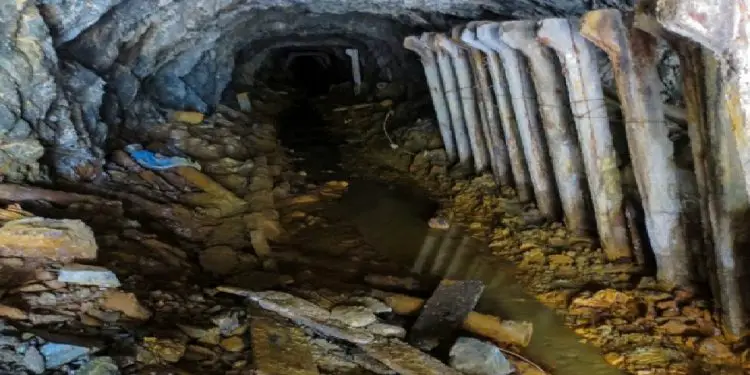
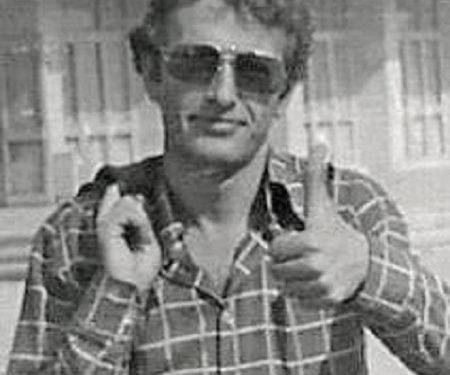
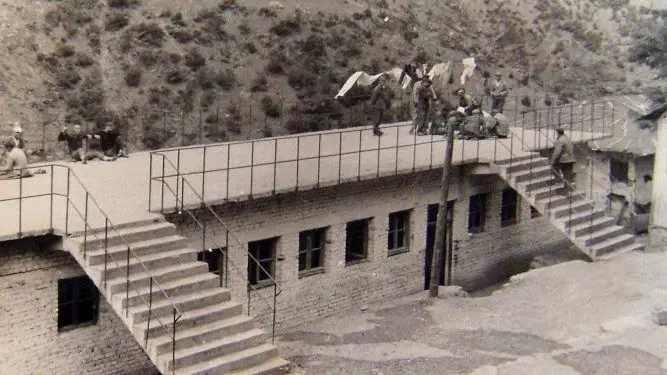
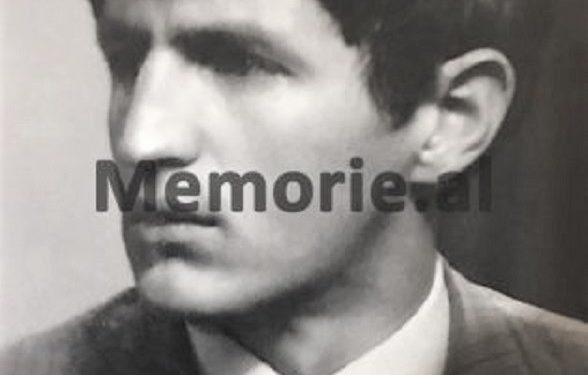
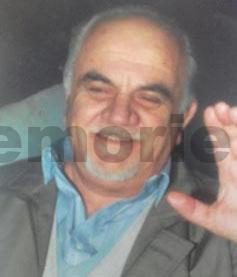
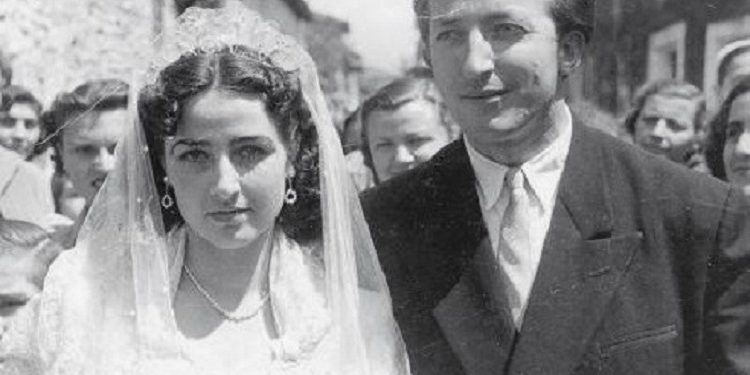
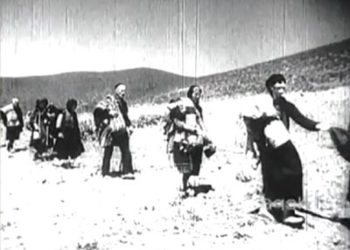
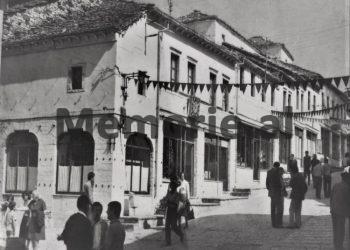

![“Count Durazzo and Mozart discussed this piece, as a few years prior he had attempted to stage it in the Theaters of Vienna; he even [discussed it] with Rousseau…” / The unknown history of the famous Durazzo family.](https://memorie.al/wp-content/uploads/2026/02/collagemozart_Durazzo-2-350x250.jpg)


